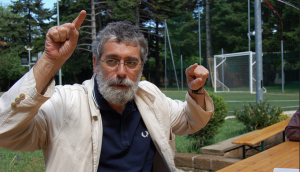Oblivion
In next week’s Torah portion, we will read this verse: “The chief cupbearer did not remember Joseph; he forgot him.” [Gen. 40.23].
Was it not enough to say that he forgot him? Why is it also written that he “did not remember him”?
Because oblivion is never only the effect of a natural process (“he forgot”), but also of a voluntary act (“he did not remember”).
This is true also for Remembrance: it is not only about what we do not forget, but also about what we decide to remember.
*David Bidussa is a historian of social ideas.

